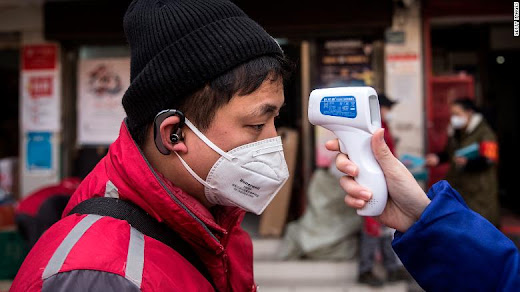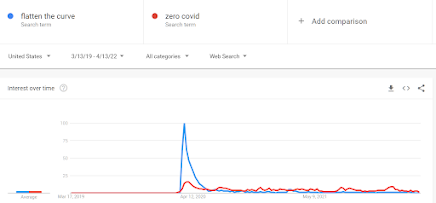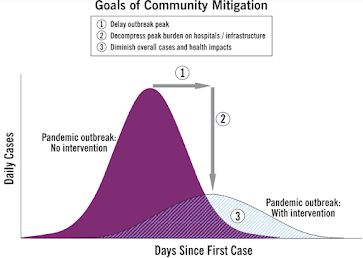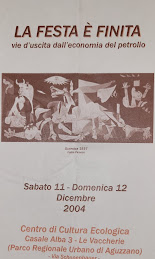In ancient Japan, a "kagemusha" (shadow warrior) was an impersonator who took the aspect and the role of the actual leader. It was simply a decoy to be used in battle but, in our times, the problem for leaders is not so much to avoid bullets but to avoid the much more powerful propaganda techniques that may destroy them. The result is the rise of a new kind of kagemusha, the KOLs (Key Opinion Leaders). The KOLs do not impersonate the true leaders, but express their ideas and plans in public, taking the blame for the failures and the mistakes that may result. The real leaders, instead, remain in the shadows. The KOLs operate in many fields, not just in politics. For instance, they are popular in science. But, their presence in politics is becoming more and more evident.
I met a top-level KOL (key opinion leader) for the first time in 2005 when I was organizing a conference on energy. The Tuscan Regional Government was sponsoring the conference, and they wanted a high-profile speaker. So, they insisted on inviting Jeremy Rifkin, the author of "The Hydrogen Based Economy" (2001). I disagreed, but they were those who paid for the conference, so we had to invite him. Rifkin wanted $10,000 as a fee, a first-class plane ticket, and VIP treatment. He got all that in exchange for a talk of about 45 minutes, in which he said nothing new or especially interesting. He took no more than a few questions, giving vague answers, then he disappeared, leaving for another conference. He didn't even stay for the speakers' dinner.
That was at a time when the KOLs were still relatively rare -- I think the acronym didn't even exist. But, over the years, the term is becoming common, even though the term "influencer" remains more frequent. Normally, the term KOL is applied to fashion and performing arts. You see in the image a typical example.
There also exists a line of KOLs operating in science. Carl Sagan (1934–1996) was an early incarnation of the KOL scientist. He started his career as a first-class scientist, but he was among the first to suffer from what was later called the "Sagan Effect." It describes how scientists who move into popularization soon become "celebrity scientists" and tend to neglect or abandon real scientific research. Emil Kirkegaard calls them "the Kardashians of Science." Another example is Neil deGrasse Tyson. (*)
Both Sagan and Tyson did a good service to science with their popularization efforts, but that is not always the case. The KOLs may well distort or falsify the results of scientific research, depending on who are their sponsors. It is, simply, corruption. The scientist who takes a few steps into the media, soon discovers that there is good money to be made there. Much more money than what an average scientist can even dream of. Then, they discover that the more time they can dedicate to the media, the more money they can make. Soon, the (former) scientist starts to operate in the "pieceworker mode." They move from one conference to another, from an interview to another, trying to cram as many of them per day as possible.
How much are the KOLs of science paid? Of course, that depends on rank. I already told you about the fee that Jeremy Rifkin mustered in 2005, today it must be much more for top-level KOLs. I could give you the names of scientists who ask fees of the order of Eur 20,000-30,000 for participating in a conference, and they are not the top stars in their fields. In Italy, the fee of a middle-level virologist during the pandemic, Ilaria Capua, was reported to be $2000 for ten minutes of a TV interview. More famous virologists surely make more. But of course, much of the money provided by the industry for the KOLs is shrouded in consultancies, teaching fees, honoraria, and various perks (conferences in fashionable resort places, for instance). There are also plain salaries that can be very high. As an example, for years, Tony Fauci, director of the National Institute of Allergy and Infectious Diseases, was the highest-paid government employee in the United States with more than $400,000 per year. And he surely had additional sources of income.
As you can imagine, the corruption problem is especially bad in medicine, where a lot of money can be made by promoting specific products. On this, you may read the book by Peter C. Goetsche "Deadly Medicine and Organized Crimes." (2013). Goetsche is a somewhat controversial figure for his radical stance on several subjects, but his description of the behavior of the KOLs in medicine is both stunning and realistic. Formerly, they may have been good scientists but, at some moment, they switched to the dark side, being paid to promote the products that the industry sells. They are in for the money, there is little else that matters to them.
All that is bad enough by itself. But science is not independent of politics, as you know, and that may well make things worse. During the COVID crisis that started in 2020, the public was suddenly exposed to a complex and difficult topic that they had never seen before: they were told about statistical data, such things as mortality, lethality, herd immunity, and much more. In the great confusion, they tended to rely on familiar figures that looked trustworthy. Tony Fauci was by far the most visible of them in the US, followed at some distance by figures such as Rochelle Walensky and Francis Collins. They justified and promoted whatever the government thought was a good idea to do. The government, in turn, acted following the advice of these and other KOLs, who were promoting the products of the pharmaceutical industry. Science, KOLs, and money became an unholy mix that created immense damage. But so goes the world.
The KOLs may now be spilling into politics. The first actor to become a high-rank politician was Ronald Reagan, but he was far from being a "puppet president", although he profited from his experience as an actor to manage his public image. In recent times, though, we are seeing actors becoming frontmen for figures who remain backstage. A good example is Vladimir Zelensky, president of Ukraine. Independently of what you think of what's happening in Ukraine, Zelensky is clearly a modern kagemusha: an actor playing the role of the president. The way he dresses, the short beard, the posture, all are part of a character that could have starred in a movie, except that the war in Ukraine is all too real. Because of the dangers involved in the current situation, it is understandable that the Ukrainian powers that be much prefer a kagemusha as president rather than to appear themselves on stage. In the picture, you see also the French President, Emmanuel Macron, who may have tried to copy Zelensky's warlike style.
So far, Zelensky remains a relatively isolated case. But it is possible that the KOL fashion will spread to other countries and other leaders. As an example, I can cite Mr. Matteo Salvini in Italy. As the leader of the League, he became deputy prime minister in 2018, and he is still a member of parliament. Salvini is popularly known in Italy as "Captain Nutella," owing to his penchant to present a public image of himself while eating junk food. He was never an actor, but he started his career as a participant in a TV game show, and he does not have much more than that in his professional CV (**). Incidentally, I have the impression that Zelensky took Salvini as a model; the same beard, the same style of dressing in sweatshirts, the same populist rhetoric. Not the Nutella, though.
(*) On a personal note, my career as KOL was nipped in the bud when I was invited to speak about nuclear energy in a debate on a national channel in 2010. It was a time when the Italian government had big plans for new nuclear plants. The people who had invited me had noted that I was involved in peak oil studies and, from that, they must have deduced that, since I was against fossil fuels, I had to be favorable to nuclear energy. During the debate, I mentioned the problems of the availability of mineral uranium, and I mentioned the "uranium peak." Immediately, they cut me off. Just like that: I disappeared from the screen and the debate went on without me. And they never invited me again. Had I been a little smarter, I could have made some money by becoming a nuclear KOL, but so it goes.
(**) The populist image that Salvini proposes to his constituency doesn't mean that he is dumb. Not at all. On the contrary, he is a smart guy, perfectly able to catch opportunities when they appear. I think he would be better than many others as Prime Minister in Italy.




























